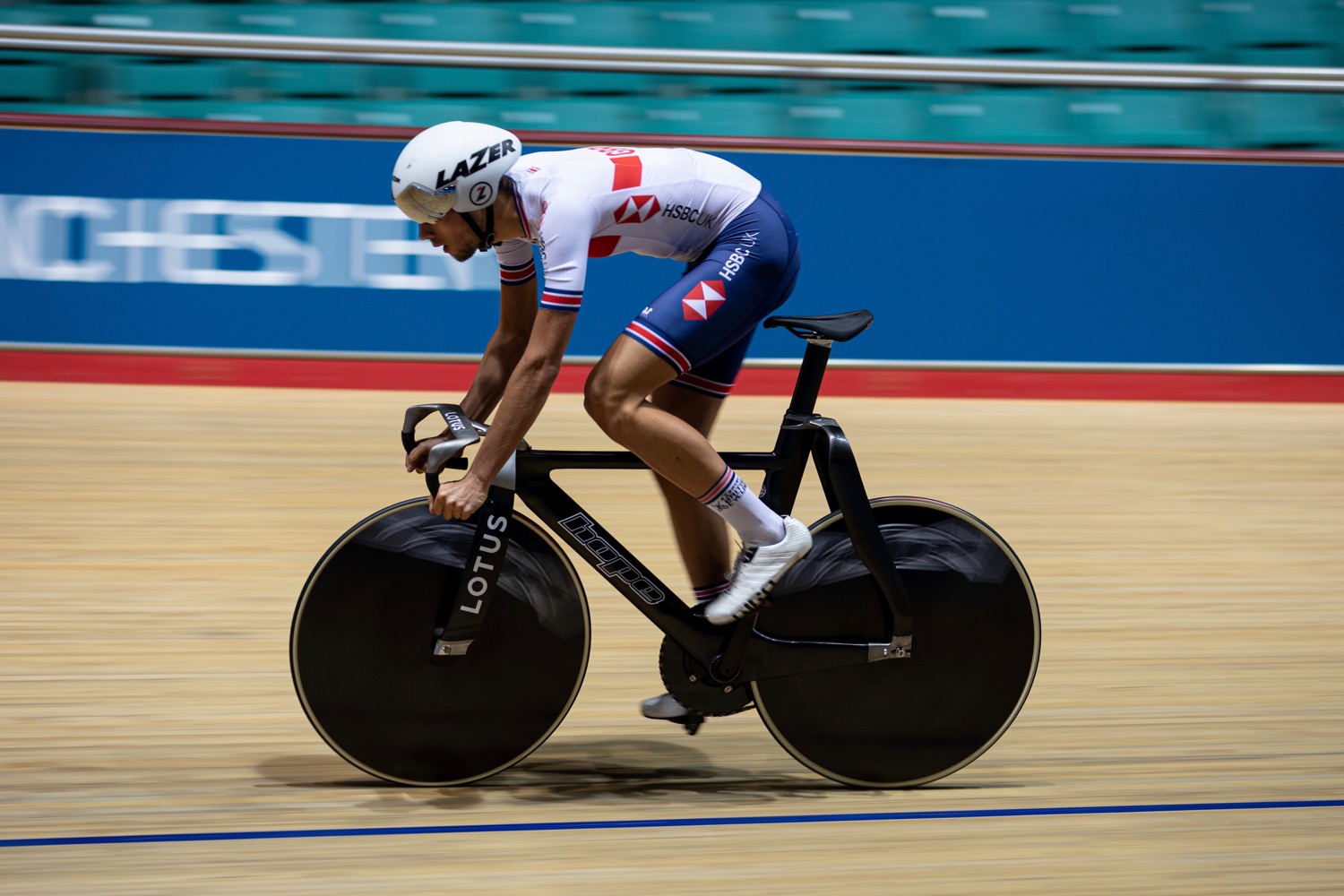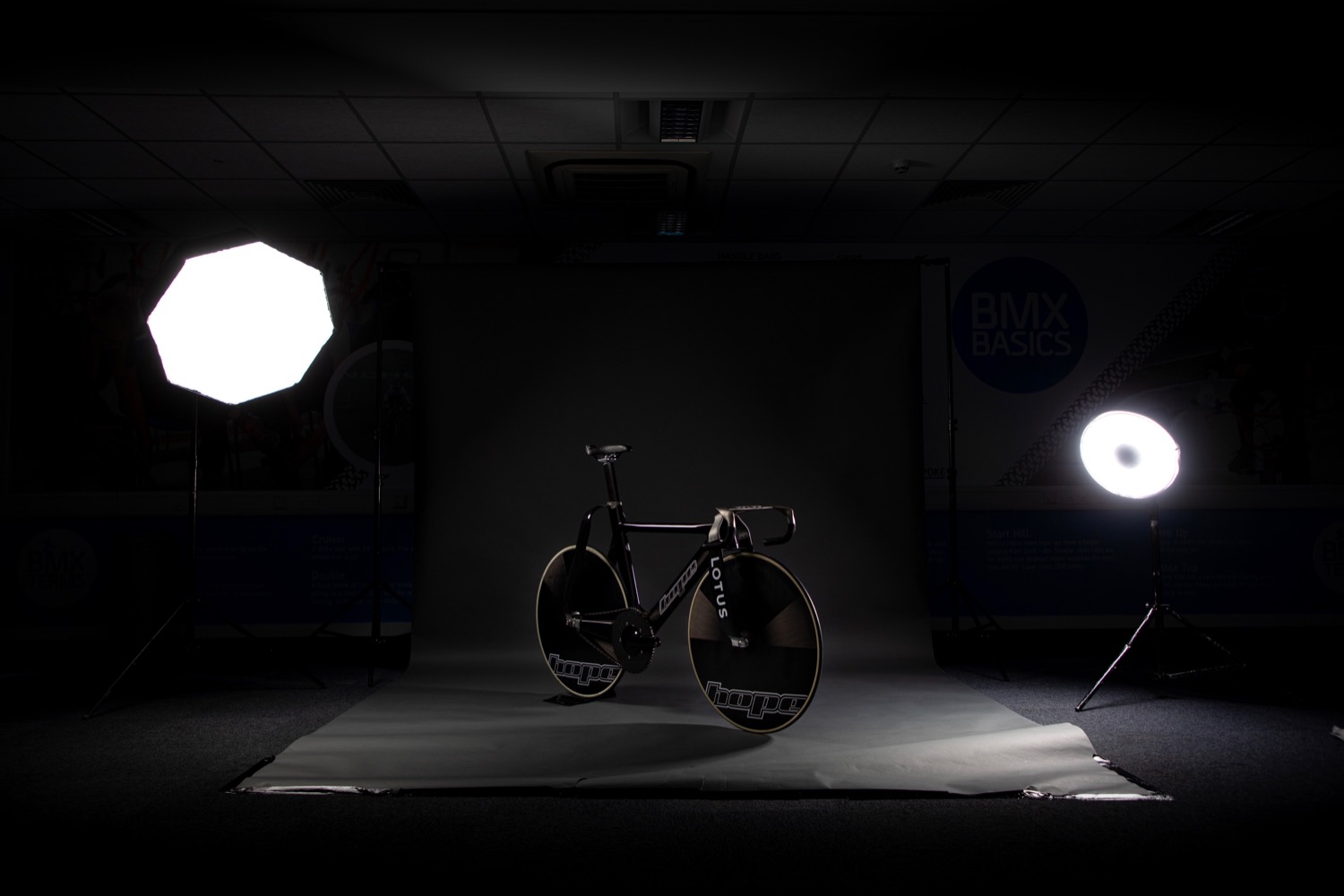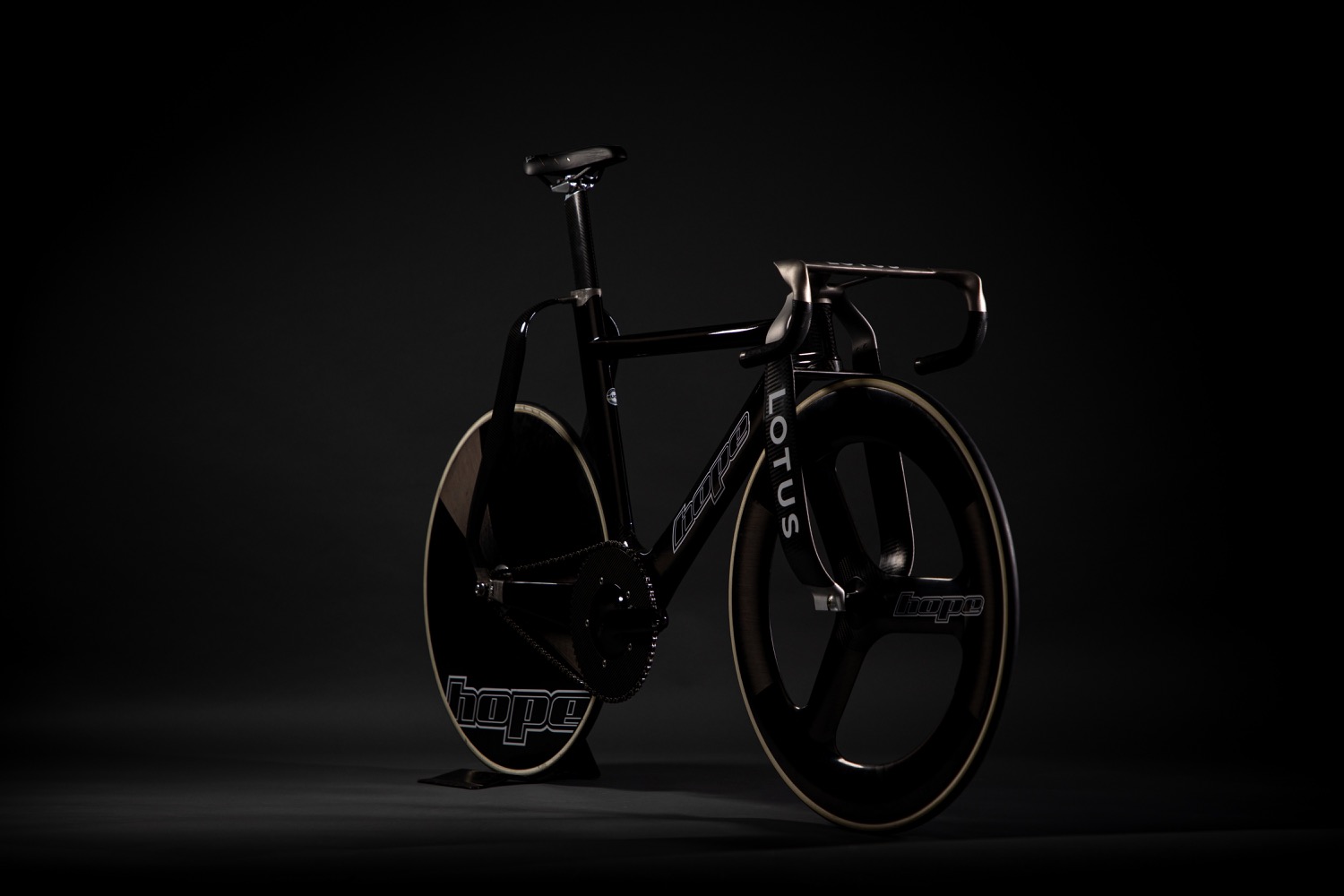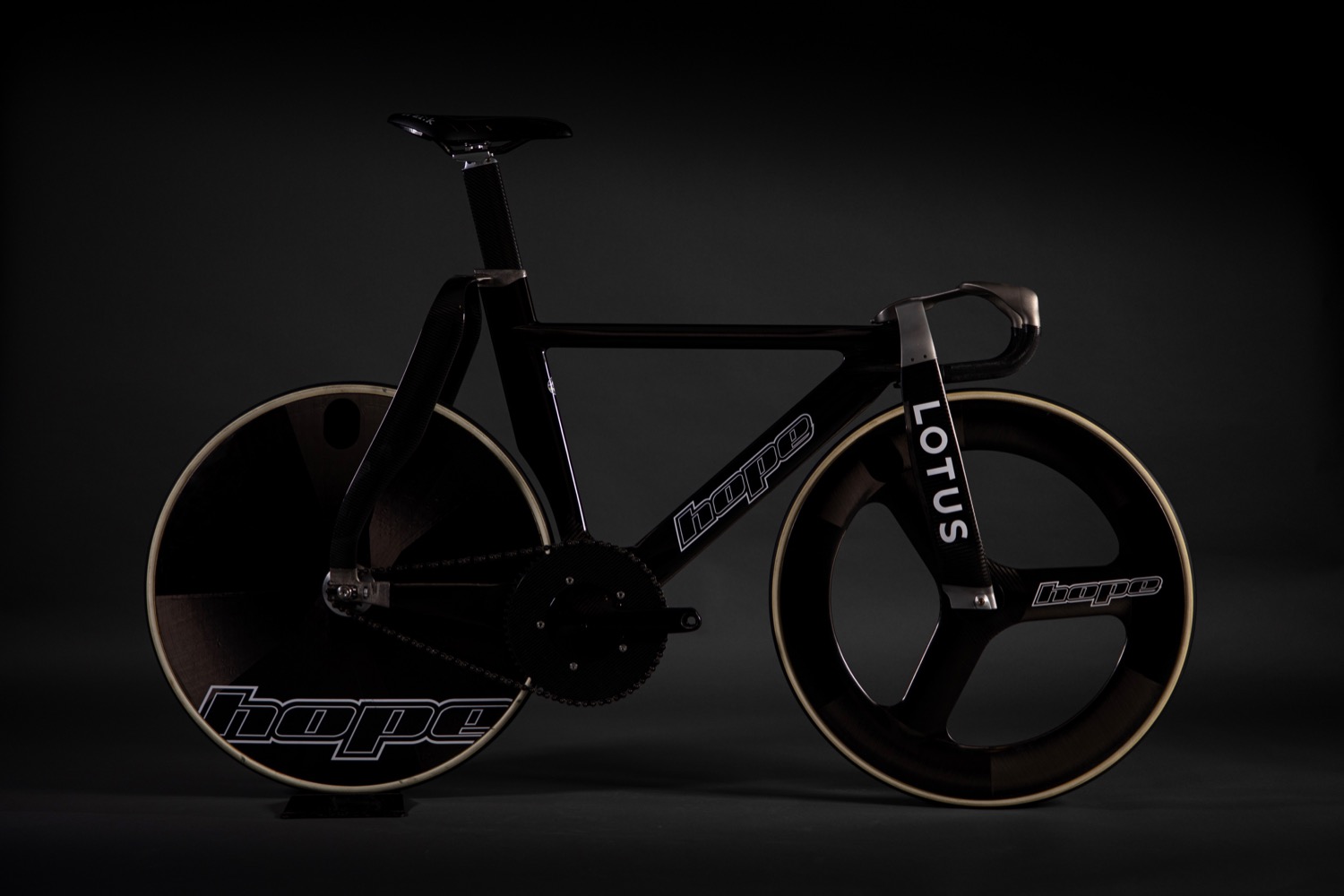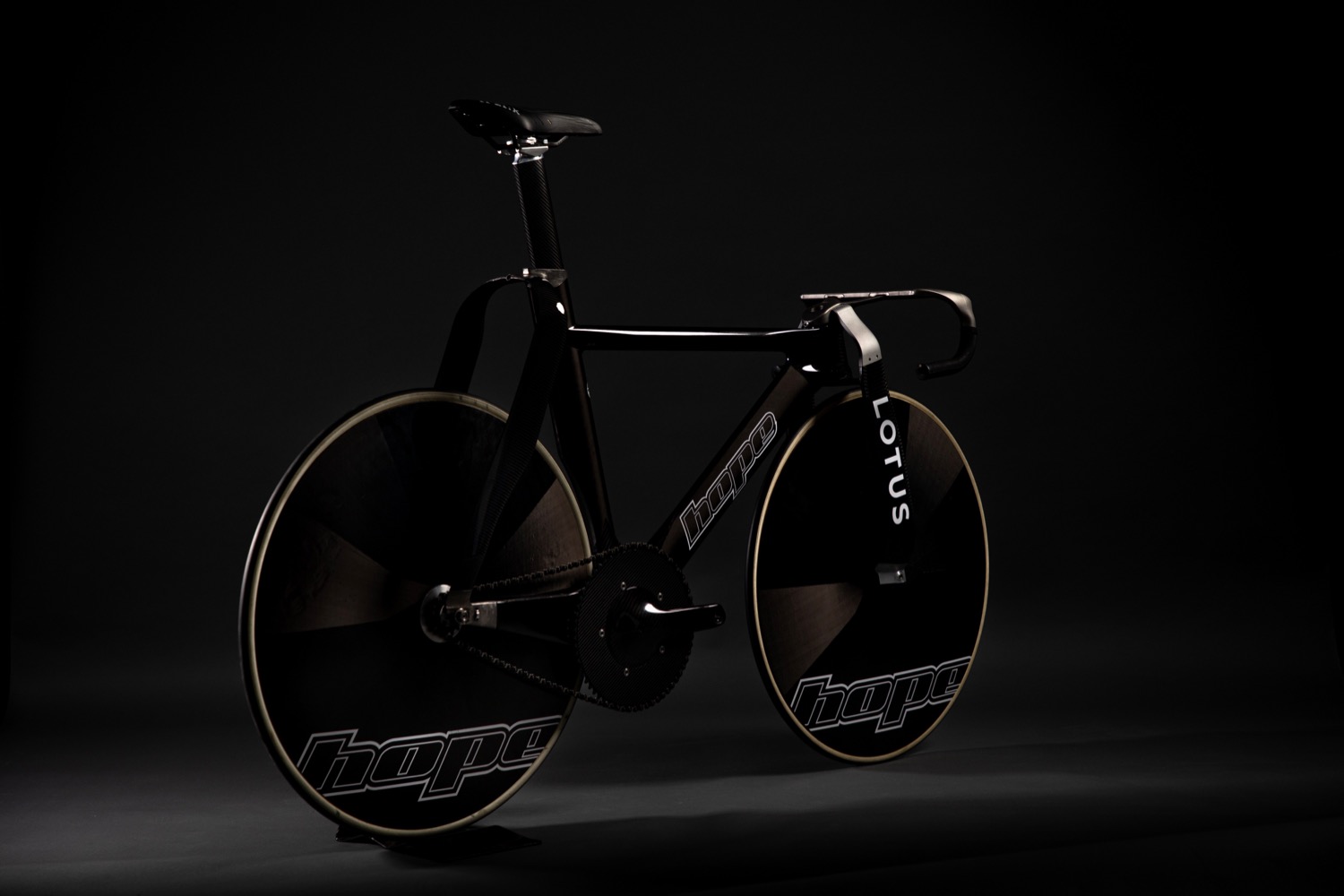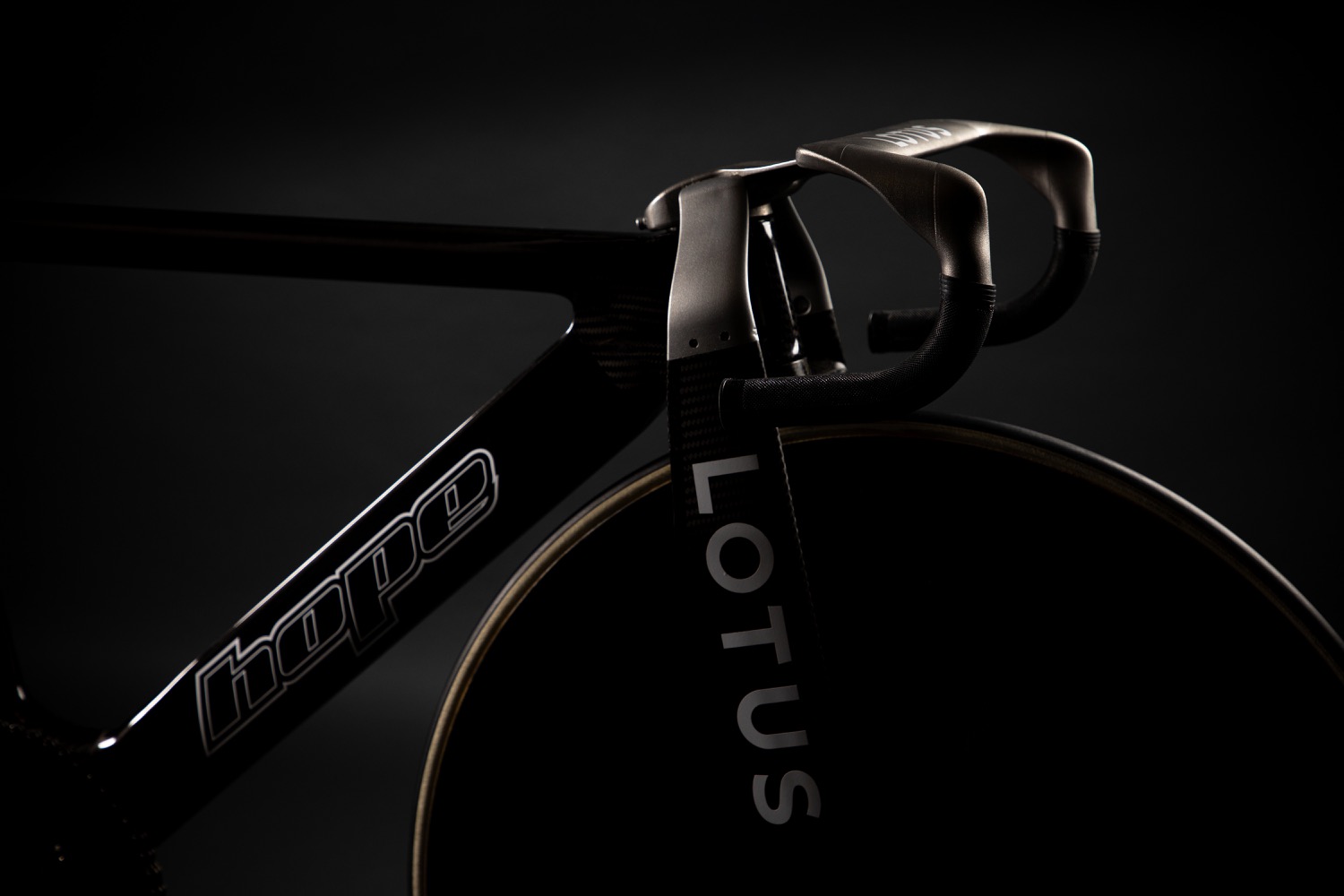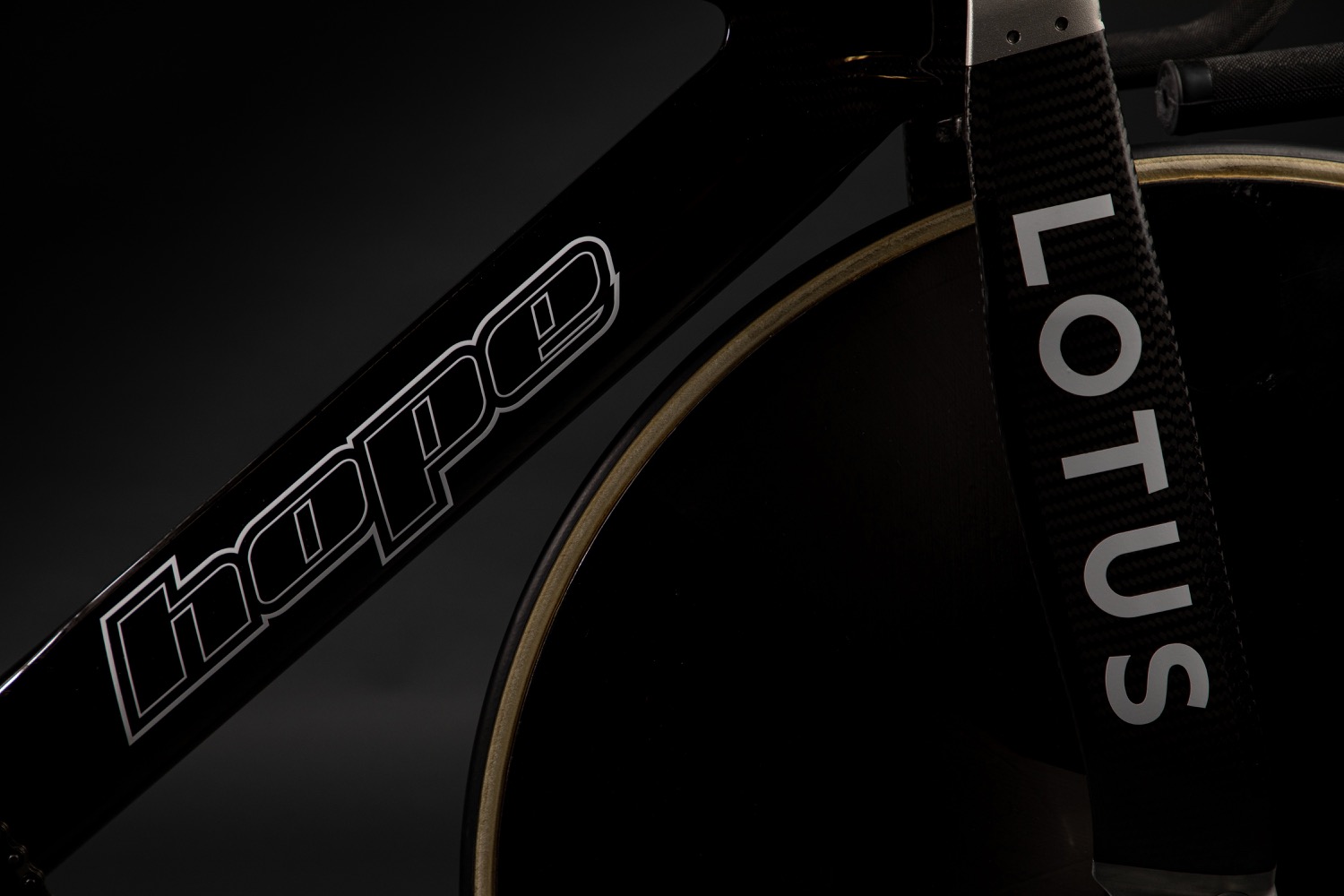Lotus hasn’t launched a new car in a while, instead preferring to churn out endless variations of its existing models. The next new four-wheeled Lotus is likely a few years away, but the British automaker has a new two-wheeled creation. The company’s engineering division teamed up with bicycle firm Hope Technology to design a racing bicycle, which will be used by the Great Britain Cycling Team at the 2020 Summer Olympics.
Lotus founder Colin Chapman’s famous maxim was “simplify, and add lightness.” A racing bicycle is about as simple and light as it gets. Minimizing weight without compromising the strength of the bike frame was a priority, according to Lotus. The company said it was primarily responsible for the front fork and handlebars, and worked with Hope Technology to integrate those pieces with the rest of the bike. Engineers worked to maximize stiffness and front end feel to improve rider confidence, according to Lotus. The process had a lot in common with car design.
Just like when designing a new sports car, the bicycle and its rider were tested in a wind tunnel. The bike also had to comply with the latest rules, enacted followed the 2016 Olympics. Exploiting the rules to get maximum performance is something Lotus knows all about. Back when it raced in Formula One, Lotus was one of the most innovative teams on the grid, bending the rules (and occasionally breaking them) with clever engineering to get an advantage over other teams.
Lotus has some experience with bicycle racing as well. In the 1990s — right around the time the original Team Lotus exited Formula One — Lotus developed a series of racing bikes for Chris Boardman. He won a gold medal at the 1992 Olympics and the prologue time trial at the 1994 Tour de France on Lotus-designed bikes.
Lotus built some of the greatest sports cars in history, but the company is now a shadow of its former self. The Lotus lineup currently consists of three aging models — the Elise, Exige, and Evora. Only the Evora is currently sold in the United States. But Lotus is attempting a bold comeback with an electric hypercar called the Evija (pronounced “e-vi-ya.”). Set to launch in 2020, Lotus claims the Evija will have 2,000 horsepower and will cost between $1.9 million and $2.5 million. That’s a big step up from a bicycle.
